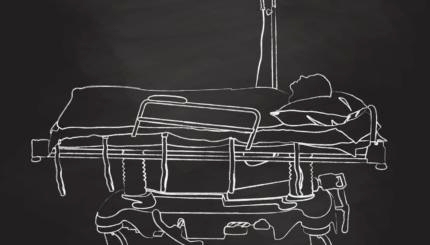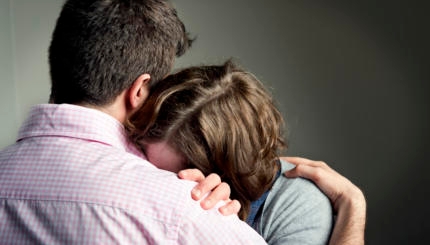Reprinted with permission from Finding Each Other in Judaism (UAHC Press).
The burial is to take place as soon as possible following death. Out of respect for the deceased, out of reverence for the image of God, it is not to be delayed.
This ritual tradition is based on a revealing interpretation of the biblical verse in Deuteronomy 21:22-23: “If a person has committed a sin worthy of death and he be put to death and you hang him on a tree, his body shall not remain all night upon the tree, but you shall bury him the same day, for he that is hanged is a reproach to God.”
Why a reproach to God? A powerful rabbinic parable explains: “There were once twin brothers identical in their appearance. One was appointed king, while the other became a brigand and was hanged. Now when people passed by and saw the brigand hanging, they exclaimed, ‘The king is hanged'” (Midrash Tannaimon Deuteronomy 21:23). The parable views God and the human being as twins, connected souls. To denigrate a human being is to desecrate God, to deface a human being is to defame God, to shed the blood of a human being is a reproach to God.

Help us keep Jewish knowledge accessible to millions of people around the world.
Your donation to My Jewish Learning fuels endless journeys of Jewish discovery. With your help, My Jewish Learning can continue to provide nonstop opportunities for learning, connection and growth.
The Israeli novelist S. Agnon suggested that the Mourner’s Kaddish, [a memorial prayer] which calls for magnifying God’s name, is recited not only to comfort the human bereaved but to console the divine Creator, for whom the loss of every human being diminishes His glory. God is a mourner at every death of God’s creations.
The inherent dignity of the individual is comparable to that of the scroll. The death of an individual is like the burning of a Torah. In both instances, the witnesses to such events are required to rend their garments [as are all Jews at the funeral of a close relative].
The disqualified Torah cannot be used and the deceased have no mitzvot [commandments], but both are buried and honored. According to a rabbinic insight, the broken tablets of the law that Moses dropped were not discarded. The shattered tablets, which remind us of our failings, hold a place of honor in the of holiness beside the whole tablets of the law. Such too is the enduring sanctity of the divine image in life and death.
Sign up for a Journey Through Grief & Mourning: Whether you have lost a loved one recently or just want to learn the basics of Jewish mourning rituals, this 8-part email series will guide you through everything you need to know and help you feel supported and comforted at a difficult time.
Looking for a way to say Mourner’s Kaddish in a minyan? My Jewish Learning’s daily online minyan gives mourners and others an opportunity to say Kaddish in community and learn from leading rabbis.


